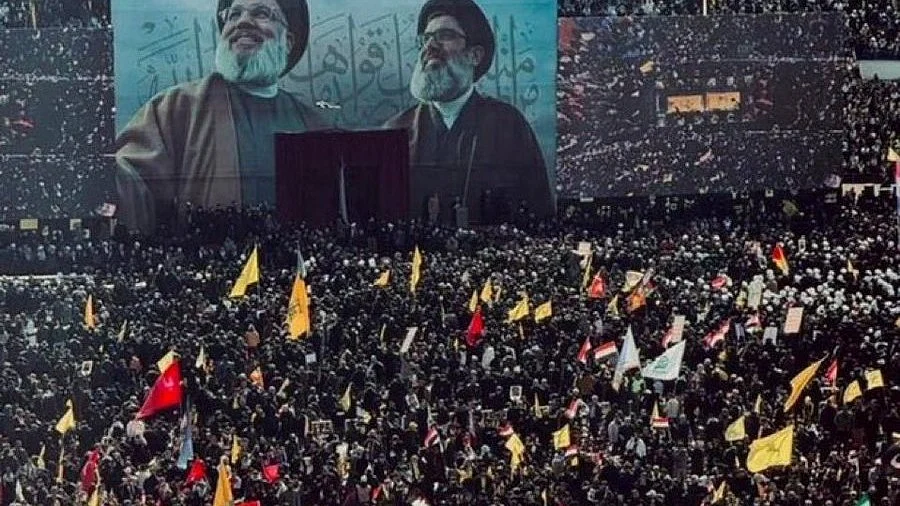Lebanon to disarm Hezbollah, US to pressure Israel into ceasefire?
Hezbollah believe Israel's military should first withdraw from the hilltops it has occupied since 2024 and stop launching daily airstrikes into the country

The US special envoy to Lebanon said on 18 August, Monday, that his team would discuss the long-term cessation of hostilities with Israel, after Beirut endorsed a US-backed plan for the Hezbollah militant group to disarm.
Tom Barrack, following a meeting with Lebanese president Joseph Aoun, also said Washington would seek an economic proposal for post-war reconstruction in the country, after months of shuttle diplomacy between the US and Lebanon.
Barrack is also set to meet with prime minister Nawaf Salam and speaker Nabih Berri, who often negotiates on behalf of Hezbollah with Washington.
“I think the Lebanese government has done their part. They've taken the first step,” said Barrack, who is also the US ambassador to Turkiye. “Now what we need is for Israel to comply with that equal handshake.”
Lebanon's decision last week to support a plan to disarm Hezbollah angered the Iran-backed group and its allies, who believe Israel's military should first withdraw from the five hilltops it has occupied in southern Lebanon since the end of its 14-month war with Hezbollah in November 2024 and stop launching almost daily airstrikes into the country.
Naim Kassem, Hezbollah's secretary-general, has vowed to fight efforts to disarm the group, sowing fears of civil unrest in the country.
Barrack warned Hezbollah that it will have “missed an opportunity” if it doesn't back the calls for it to disarm.
Aoun and Salam both want to disarm Hezbollah and other non-state armed groups, and have demanded Israel halt its attacks and withdraw from the country.
Aoun said he wants to increase funding for Lebanon's cash-strapped military to bolster its capacity. He also wants to raise money from international donors to help rebuild the country.
The World Bank estimates that Hezbollah and Israel's months-long war in late 2024 cost USD 11.1 billion in damages and economic losses, as large swaths of southern and eastern Lebanon were battered. The country has also faced a crippling economic crisis since 2019.
Follow us on: Facebook, Twitter, Google News, Instagram
Join our official telegram channel (@nationalherald) and stay updated with the latest headlines
